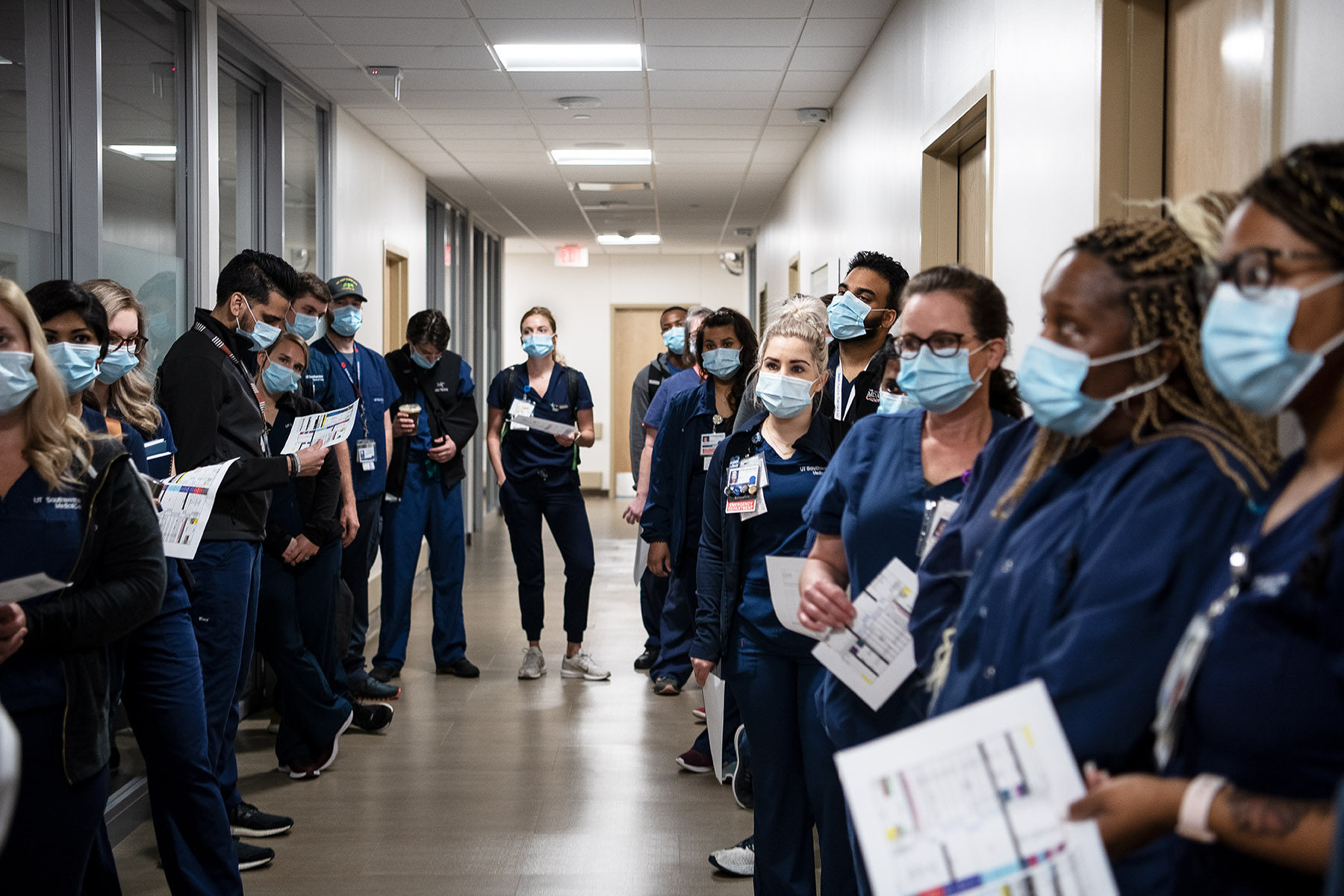In mid-January, the first known case of a COVID-19 variant arrived in Dallas County. This version, first discovered in England, is a more contagious mutation of the original virus. So why haven’t we heard about it spreading since its arrival? Why haven’t cases spiked? And what should we be doing now that the variant is present?
Learning more about the variants may help assuage underlying fears. First, experts expected the mutations. Second, the variants are limited and not likely to turn into something that the vaccine or a future booster can’t protect against. Still, the different versions of the virus have indeed demonstrated a higher resistance to the existing vaccines and are more contagious. Also, we don’t yet have a handle on how quickly these variants are spreading.
Standard COVID-19 testing can’t detect what version of COVID-19 a person has. Researchers must sequence the infected person’s genes to learn which version of the virus is present. The UK has been much more active in this sort of gene sequencing, which is how British scientists first discovered variant B.1.1.7. Just because the variant was found in England doesn’t mean it started there. Robust sequencing is necessary to track the spread and origins of the disease, which isn’t currently being done worldwide. The United States has only recently expanded its sequencing efforts.
As of Feb. 2, health officials had found 500 cases in 33 American states. Eight of those cases are in Texas. The actual number is probably much greater because of the lack of sequencing. Just as a lack of COVID-19 testing availability undercounts the number of total COVID-19 cases, a lack of sequencing means we don’t know how quickly the variant is spreading or where. The first case of the UK variant was detected in Denton County just this week.
“For all we know, that’s the tip of the iceberg,” says Dr. James Cutrell, the program director of the infectious diseases fellowship program at UT Southwestern. “We know that it’s been identified in Texas and North Texas, but we don’t know at this point how widespread or how common it is.”That said, new daily cases in DFW have decreased since the variant has arrived.
The English version is 40 to 50 percent more contagious than the original COVID-19 virus, he says. According to Cutrell, it doesn’t cause more severe symptoms and seems to react the same way to the vaccine and antibody therapies as the original.
Two other versions are on the CDC’s list of mutated COVID-19 viruses. The first was discovered in South Africa and is both more contagious and has shown a stronger resistance to vaccines. However, the majority of trial participants were still protected against this variant and those who were still infected did not incur more severe symptoms. There have only been a handful of cases in Maryland and South Carolina so far, but those who were found to have this version hadn’t traveled internationally. That means it was already spreading through the community undetected. Public health experts believe it is a matter of time until it is found here.
A third version that was first discovered in Brazil has been found in Minnesota. This version is both more contagious and more resistant to the vaccine but isn’t likely to cause more severe symptoms in unvaccinated residents. The vaccine protects most people against severe symptoms for this version, as well. This variant was discovered in Manaus, where cases had been dropping after an unbelievable 70 to 75 percent of the population were infected. It was thought that the population had achieved herd immunity when cases began to rise again, including those who had been infected before.
While cases have declined from their peak in January, experts say the variants could become the dominant version here in the United States, just as it has in England. About 75 percent of new cases in the U.K. were of the more recent variant. UTSW’s latest modeling shows a steady decrease in cases through the end of the winter, with fewer than 500 cases per day by March. But a slight change in masking and social distancing measures could see the daily case totals sail above 4,000 through the winter.
Cutrell says that booster shots may shore up our defense against the virus over the next couple of years as more mutations occur. But he doesn’t believe that the virus has the variability to be a constantly shifting threat over the years, as opposed to the annual flu shot. He says boosters won’t require the lead time and extensive trials and most likely won’t include multiple shots like current versions of the vaccine.
Increased vaccinations, continued masking, and physical distancing are the key to avoid more mutations. Think of it this way: remove the basketball and the court from the team and they won’t develop new plays and skills as quickly as they normally would.
“The sheer number of cases and amount of spread that we’ve had over the last several months has provided the opportunity for the virus to mutate and change,” Cutrell says. “If we can get the total number of infections to decrease dramatically, then we’re going to decrease the opportunities the virus has to change.”






